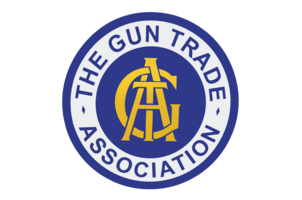The UK Government has confirmed its intention to remove sound moderators from the
legal definition of a firearm, following overwhelming support from the shooting
community in a recent public consultation.
First outlined in early 2024, the proposal seeks to reduce the administrative burden
on both certificate holders and police forces by no longer requiring a variation to a firearms certificate in order to acquire or possess a moderator. A total of 19,277 responses were received during the six-week consultation, with 94% of respondents in favour of deregulation.
Currently, sound moderators, devices used to reduce noise and muzzle flash, are classified as components under section 57(1)(d) of the Firearms Act 1968. As such, they
are treated as firearms in their own right, requiring police authorisation for
possession or acquisition. The Government now proposes legislative reform to
remove that requirement, recognising that moderators pose no inherent danger to
public safety.
In its formal response, the Home Office stated: “This would meet the original objective of removing the administrative burden on the police and shooters of having to apply for a variation of a firearms certificate in order to acquire or own a sound moderator while at the same time helping to ensure that they were only held by those with a legitimate purpose, as demonstrated by the possession of a valid firearms certificate.”
GTA's role in achieving reform
The Gun Trade Association played a significant role in pushing for this change over a
sustained period, engaging directly with policymakers, civil servants and the wider shooting community. The issue has been under discussion for several years, with the GTA consistently making the case that moderators, being inert and non-lethal, should not be subject to the same licensing controls as firearms.
Stephen Jolly, executive director of the Gun Trade Association, told Gun Trade Insider: “It’s important for the trade and for certificate holders to understand that this is not yet law, but it’s a clear step in the right direction. We welcome the Government’s recognition that moderators pose no public safety risk and that their continued licensing is a needless bureaucratic burden.”
Primary legislation over reform orders
Despite calls for swift action via a Legislative Reform Order (LRO), the Government confirmed it would instead pursue change through primary legislation. While a slower route, this approach allows the Firearms Act 1968 to be updated more comprehensively. It also paves the way for a new offence: possessing a moderator without a valid firearm certificate, ensuring only licensed individuals have access.
Stephen added: “It’s not the complete deregulation many of us had hoped for, moderators will still only be legally available to certificate holders, but it’s progress.
It cuts unnecessary paperwork for the police and shooters alike, and that’s a win for the whole sector.”
Health, safety and community confidence
The Government acknowledged overwhelming support for the change on health and
safety grounds. Some 95% of respondents said moderators played an important role in protecting hearing and reducing noise pollution, while 98% agreed that removing licensing controls posed no public safety risk.
Nonetheless, a minority raised concerns about possible criminal misuse, particularly in
relation to poaching. The Government concluded such risks were minimal and would be mitigated by the continued requirement to hold a firearm certificate.
Airguns
Although the reform applies across the UK, moderators for airguns in Scotland will
remain regulated under the Air Weapons and Licensing (Scotland) Act 2015.
The Scottish Government has indicated it is reviewing this position in light of
the Home Office’s decision.
Airguns classified as Section 1 in England and Wales may also present challenges under
the licensing framework.
Stephen also highlighted some remaining uncertainties: “There are still grey areas. What about muzzle brakes or flash guards, will those be caught by the new definition?
Next steps
While no legislative timeline has been announced, the Home Office has stated that it
will introduce the necessary reforms “when Parliamentary time allows.” Until then, moderators will remain subject to existing licensing controls.
Within the trade, there is growing frustration over the lack of clarity around implementation. GTA council members have raised concerns about the vague language used by the Home Office, particularly the phrase “when Parliamentary time allows”, and believe strong pressure should be applied to the Government to provide a clearer indication of when the reform will be enacted.



